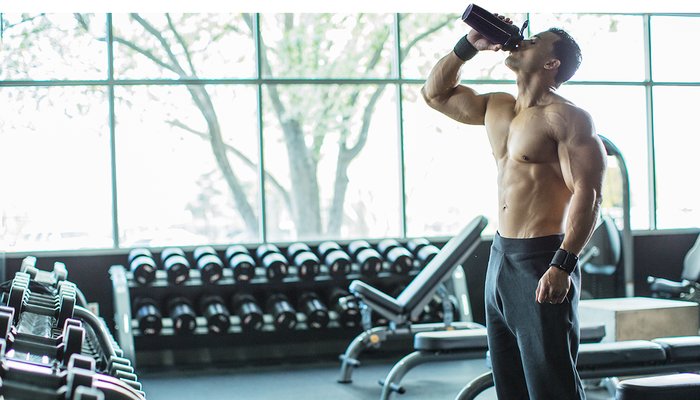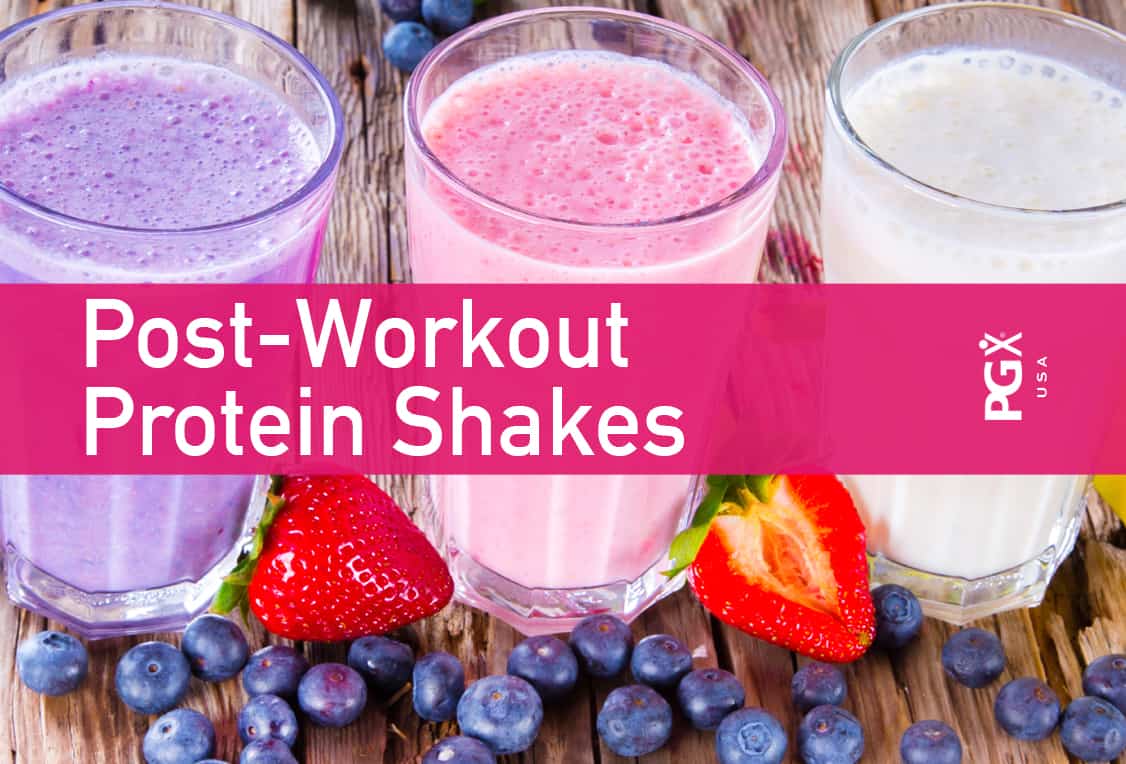
The Best Post-Workout Foods for Recovery and Refueling
Written: Editor | April 10, 2023

Macronutrients for Optimal Recovery
Carbohydrates: Fueling Your Muscles
After an intense workout, your body needs to replenish its energy stores. That's where carbohydrates come in. Consuming carbohydrates post-workout helps restore glycogen levels in your muscles, which provides the necessary fuel for your next training session. Opt for complex carbohydrates like whole grains, fruits, and vegetables, as they provide a steady release of energy and offer additional nutrients.
Protein: Building Blocks of Muscle Repair
Protein is essential for muscle repair and growth. When you exercise, you break down muscle fibers, and consuming protein post-workout helps rebuild and repair these tissues. Aim for a combination of fast-digesting protein, like whey protein powder, and slow-digesting protein, such as lean meats, fish, or plant-based protein sources. This combination ensures a sustained release of amino acids to promote muscle recovery and growth.
Healthy Fats: Supporting Recovery and Energy
Including healthy fats in your post-workout meal helps boost recovery and provides sustained energy. Omega-3 fatty acids, found in fatty fish like salmon and in foods like avocados, are known for their anti-inflammatory properties, which can aid in reducing muscle soreness and inflammation. Additionally, healthy fats provide a slow-burning source of energy, helping you feel fuller for longer.
To recap the importance of macronutrients for optimal recovery:
| Macronutrient | Role in Recovery |
|---|---|
| Carbohydrates | – Replenish glycogen stores in muscles for energy |
| Protein | – Rebuild and repair muscle tissues |
| Healthy Fats | – Aid in reducing muscle soreness and provide sustained energy |
Incorporating a combination of these macronutrients into your post-workout meal can maximize your recovery and help you achieve your fitness goals. Remember to stay hydrated and listen to your body's cues for hunger and fullness. Consulting with a registered dietitian or sports nutritionist can also provide personalized guidance based on your specific needs and goals.

Top Post-Workout Foods
After an intense workout session, it is crucial to refuel your body with the right nutrients. Incorporating the right post-workout foods into your diet can aid in muscle recovery, enhance performance, and promote overall wellness. Here are three top post-workout foods that professionals recommend:
Greek Yogurt with Berries and Granola
Greek yogurt is a fantastic choice for replenishing your body's protein and carbohydrates after exercise. It is rich in casein and whey protein, which are essential for repairing and building muscles. Adding fresh berries provides antioxidants and natural sugars, while a sprinkle of granola adds a satisfying crunch and additional fiber.
Grilled Chicken Breast with Quinoa and Roasted Vegetables
Grilled chicken breast is a lean source of protein that aids in muscle recovery. Combining it with quinoa provides a complete protein source while delivering complex carbohydrates. Quinoa is also rich in fiber, iron, and magnesium. Pairing these with a variety of roasted vegetables, such as broccoli, carrots, and bell peppers, adds vitamins, minerals, and antioxidants to your post-workout meal.
Salmon with Sweet Potato and Steamed Broccoli
Salmon is an excellent choice for a post-workout meal due to its high protein content and omega-3 fatty acids. Omega-3s have anti-inflammatory properties, which can aid in reducing post-workout muscle soreness. Pairing salmon with sweet potato, which is packed with complex carbohydrates, and steamed broccoli, which adds fiber and essential vitamins, creates a well-balanced and nutritious post-workout meal.
Remember to hydrate properly after exercise by drinking plenty of water or consuming electrolyte-rich fluids, such as coconut water. Additionally, it is essential to listen to your body's needs and adjust your portion sizes according to your activity level and goals.
Incorporating these top post-workout foods into your diet can support your fitness journey by promoting muscle recovery, enhancing performance, and maintaining overall health. However, it is always a good idea to consult with a registered dietitian or nutritionist to ensure that your dietary choices align with your specific needs and goals.

Supplementing Your Post-Workout Nutrition
When it comes to post-workout nutrition, the right foods can make a significant impact on your recovery and muscle growth. If you're looking to optimize your results, consider incorporating these key supplements into your routine.
Protein Shakes: Convenient and Effective
Protein shakes have long been a staple in the fitness world, and for good reason. They provide a quick and convenient source of high-quality protein, which is essential for muscle repair and growth. Whey protein, in particular, is known for its fast absorption and ability to stimulate protein synthesis.
Consuming a protein shake within 30 minutes of your workout can enhance muscle recovery and promote muscle protein synthesis. Aim for a shake that contains around 20-30 grams of protein per serving, and consider adding carbohydrates to replenish glycogen stores.
Creatine: Enhancing Strength and Muscle Recovery
Creatine is a naturally occurring compound that is synthesized in the body from amino acids. It plays a crucial role in energy production and has been shown to enhance strength, power, and muscle recovery.
Supplementing with creatine after your workout can help replenish muscle creatine stores and promote faster recovery between training sessions. It is recommended to take 3-5 grams of creatine monohydrate per day, either mixed with water or added to a post-workout shake.
Branched-Chain Amino Acids (BCAAs): Reducing Muscle Soreness
BCAAs are a group of essential amino acids that include leucine, isoleucine, and valine. They are commonly found in protein-rich foods such as meat, dairy, and legumes.
Consuming BCAA supplements after your workout can help reduce muscle soreness and promote muscle protein synthesis. BCAAs are readily absorbed by the muscles and can be used as an immediate source of energy during exercise.
In conclusion, incorporating protein shakes, creatine, and BCAAs into your post-workout nutrition can enhance your recovery, muscle growth, and performance. However, it's important to remember that these supplements should be used in conjunction with a balanced diet and regular exercise routine for optimal results.
:max\_bytes(150000):strip\_icc()/egg-scramble\_crop-275ed1a5ba6c43f99bf4876481fe0aca.jpg)
Tips for Effective Post-Workout Nutrition
Timing: When to Eat After a Workout
After a strenuous workout, it is crucial to refuel your body and provide it with the necessary nutrients for recovery. The timing of your post-workout meal is key. Ideally, you should consume a meal or snack within 30 minutes to two hours after exercise. This window is known as the “anabolic window,” during which your body is most receptive to nutrient absorption and muscle repair.
Hydration: Importance of Replenishing Fluids
In addition to fueling your body with nutrients, replenishing fluids is essential to restore hydration levels. During exercise, you lose water and electrolytes through sweat, and replenishing them post-workout is vital. Aim to drink water or sports drinks that contain electrolytes to replenish what was lost. Proper hydration helps regulate body temperature, supports metabolic processes, and aids in muscle recovery.
Balanced Meals: Combining Nutrients for Optimal Recovery
To maximize the benefits of your post-workout meal, it is essential to include a combination of carbohydrates, protein, and healthy fats. Carbohydrates replenish glycogen stores, which are depleted during exercise, providing energy for your next workout. Opt for complex carbohydrates like whole grains, fruits, and vegetables. Protein is vital for muscle repair and growth. Lean sources such as chicken, fish, tofu, or Greek yogurt are excellent options. Lastly, include healthy fats like avocado or nuts, which provide essential nutrients and support overall health.
Remember to tailor your post-workout nutrition to your specific fitness goals. If you have concerns about dietary restrictions or allergies, consult a registered dietitian to help you create a personalized plan.
In conclusion, post-workout nutrition plays a crucial role in optimizing recovery and maximizing the benefits of exercise. By fueling your body with the right nutrients at the right time, you can enhance muscle repair, replenish energy stores, and support overall health and performance. So, make sure to prioritize your post-workout meal and hydrate adequately to reap the rewards of your hard work at

Conclusion
In conclusion, choosing the right post-workout foods is essential for maximizing your recovery and achieving your fitness goals. By consuming a combination of protein, carbohydrates, and healthy fats, you can replenish your energy stores, repair muscle damage, and support overall recovery.
Summary of Key Points
- Post-workout nutrition plays a crucial role in muscle recovery and growth.
- Protein is essential for muscle repair and synthesis.
- Carbohydrates help replenish glycogen stores and provide energy.
- Healthy fats contribute to hormone production and reduce inflammation.
- Timing is important, and it's recommended to consume a balanced meal or snack within 45 minutes of your workout.
- Some examples of post-workout foods include lean meats, eggs, Greek yogurt, quinoa, sweet potatoes, fruits, and nuts.
Personalized Approach to Post-Workout Nutrition
It's important to remember that post-workout nutrition needs may vary depending on individual goals, body composition, and workout intensity. Consulting a registered dietitian or nutritionist can help create a personalized plan based on your specific needs and preferences.
Frequently Asked Questions
Q: Is it necessary to have a post-workout meal?
A: While it's not absolutely necessary to have a post-workout meal, consuming the right nutrients can greatly enhance recovery and optimize results.
Q: Can I have a protein shake instead of whole foods?
A: Yes, protein shakes can be a convenient option for post-workout nutrition, especially for those who struggle with appetite after exercise. However, whole foods provide additional nutrients and fiber that may be lacking in supplements.
Q: How much protein do I need after a workout?A: It is generally recommended to consume around 20-40 grams of protein after a workout, depending on body weight, exercise intensity, and goals.
Q: Can I eat carbohydrates after a workout if I am trying to lose weight?A: Yes, carbohydrates are still important for replenishing glycogen stores and providing energy, even if your goal is weight loss. Focus on healthier carbohydrate sources like whole grains, fruits, and vegetables.
Remember, post-workout nutrition is just one piece of the puzzle. Making sure you stay properly hydrated, getting enough sleep, and maintaining a balanced diet throughout the day are equally important for optimal performance and recovery.



